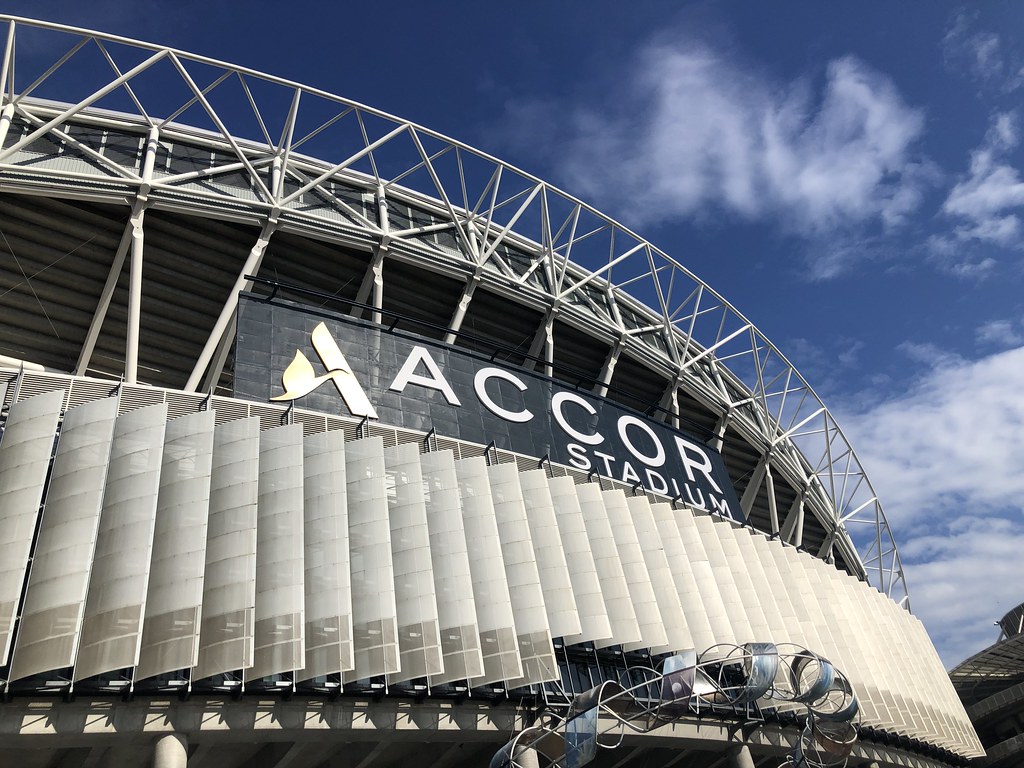Share This Article
My first encounter with the bizarre world of corporate sponsorships and naming rights was at the age of 11, during the construction of a new ice hockey arena in Detroit, Michigan. This coincided with the death of professional ice hockey player Gordie Howe. The timing seemed perfect for a posthumous tribute to a beloved Michigan sports hero who had dedicated 25 seasons to the Detroit Red Wings. As it turns out, this wasn’t quite enough motivation for the city of Detroit, which instead opted for the more lucrative offer—somewhere around $125 million per year—from the fast-food chain Little Caesars.
At the time, I wasn’t much of an ice hockey enthusiast, and my frustration came second-hand from adult dinner party conversations. I’ll admit, it was short-lived. It wasn’t until recently, after watching the new Challengers movie, that I started to think about this more critically. The relentless product placement of moisturisers, clothing brands, tennis rackets, and shoes—not so subtly making their way on screen—got me wondering: If Little Caesars can plaster its name on an arena, and I can’t get through a movie without feeling the need to buy Zendaya’s $300 moisturiser, what else is up for sale? Spoiler alert: just about everything.
Little Caesars is just the tip of an iceberg—a corporate iceberg, if you will—floating ominously toward the shores of public life. Let’s be honest: The battle for prime naming rights would be fierce. What corporation wouldn’t want to sponsor the Statue of Liberty? (“Brought to you by Liberty Mutual—protecting your freedom and your car insurance!”). In this corporate Hunger Games, even the most iconic landmarks could be fair game. Mount Everest? The highest mountain on Earth, proudly powered by Google Maps.
Behavioural economics tells us that names and branding affect our perceptions. A study could explore whether people feel differently about using branded public goods. Do they see them as less of a right and more of a consumer good? Would you feel differently about your morning jog in “Nike Park” than in “Victoria Park”? And if so, what does that say about how corporate influence shapes our economy and culture?
While branding may seem harmless—it’s just a name—the true cost is subtler and deeper. It erodes the sense of ownership and belonging that communities have in their spaces. It turns places that should be public and neutral into parts of the corporate machine, reinforcing the idea that everything has a price and anything can be sold.
The world of corporate naming rights is undoubtedly absurd but also insidious. It’s stadiums and arenas today, but the future may bring even more invasive sponsorships that permeate every corner of our lives. As we laugh at the idea of a “Doritos Public Library,” we should pause and ask ourselves: How much of our public life are we willing to sell off? At what cost to our sense of shared community and collective identity?
This may sound ridiculous, but is it so far-fetched? In a world where our private lives are already monetised through social media, where data is the most valuable currency, the commercialisation of everything seems inevitable. Will there come a day when even our very identities are up for grabs?
The implications of this trend extend beyond inconvenience or mild annoyance. They touch on larger questions about values, ethics, and society. Public spaces and cultural institutions are meant to foster a sense of unity and belonging. Turning them into branded commodities risks fracturing that sense of common ground. It sends a message that nothing is truly sacred or immune to the forces of profit.
Still, the slippery slope of corporate naming rights feels both surreal and disheartening. It’s easy to joke about landmarks with corporate sponsors—“Amazon’s Grand Canyon Adventure Park” or “The Golden Arches Gate Bridge”—but the reality is far less amusing. Each step down this path normalises the idea that everything is for sale.
So, where do we draw the line? How do we balance the financial benefits of corporate sponsorship with the intangible value of unbranded, communal spaces? These are questions worth considering before we wake up to find our public parks, libraries, and even our schools sold off to the highest bidder.
And finally, this article was proudly brought to you by Ikea: even deep thoughts come with assembly instructions.



